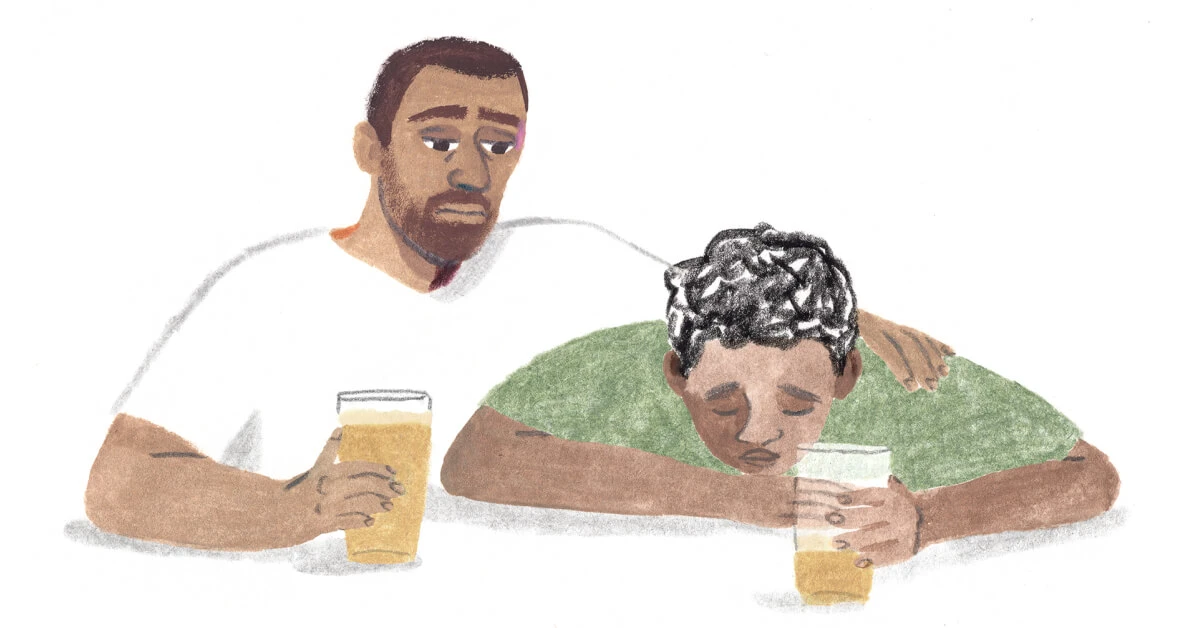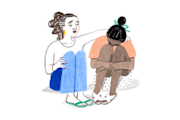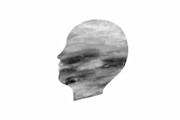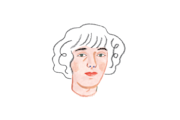Explore depression and mood disorders topics
Depression and Mood Disorders
Rates of depression in America were recently found to have climbed to 33%, affecting one in every three U.S. adults.
Depression comes in several levels and many forms—from major depressive disorder (MDD) to seasonal affective disorder (SAD).
Depressive episodes are also a symptom of mood disorders, such as bipolar disorder, and personality disorders, such as borderline personality disorder (BPD).

1. What's depression, and how is it different from major depressive disorder (MDD)?
Most of us will feel depressed or down at some point in their lives.
Grief after losing a loved one or getting divorce or feeling excluded from a friend group—all of these situations can cause a person to feel sad and lonely.
However, the official definition of depression aka major depressive disorder (MDD) is not simply feeling down or sad.
Depression disrupts your daily routine and brings pain to you and others who care about you.
It's a common ailment condition that impacted 21 million Americans in 2020, but it's also a very dangerous disorder.
Sadness, despair, hopelessness, restlessness, lack of motivation, and a general loss of interest or pleasure in life are all symptoms of depression or major depressive disorder (MDD).
It's possible that these emotions are just a fleeting episode of "the blues."
However, if the feelings last more than two weeks and interfere with everyday activities, you may have depressive disorder.
It's important to connect with a therapist who specializes in treating depression.
See therapists who offer free 15-minute initial consultations and in-person or telehealth video therapy sessions.
2. Causes of depression
There is no one single cause of depression or MDD.
Some of us begin experiencing depression after a major life event, such as divorce or the loss of a loved one.
Others may feel constant overwhelming hopelessness regardless of our circumstances.
That said, there are some factors that can indicate a higher risk for developing depression:
Genetics and family history
Brain chemistry
Stress levels
Nutrition
Addiction and/or substance use and abuse
3. Take our online depression assessment
If you’re concerned you might be depressed, take our online depression assessment to receive immediate feedback about whether to seek support and treatment.
It's fast, free, confidential, and clinically validated.
4. How to find help and support for depression
If you suspect you might be depressed, it’s important to reach out to speak with a doctor or mental health professional, such as a therapist.
The Monarch Directory by SimplePractice can connect you with licensed therapists who specialize in treating depression.
Many therapists on Monarch offer free 15-minute initial consultations and in-person or telehealth video therapy sessions.
If you have health insurance coverage, you can also browse therapists who accept your insurance.
5. What are mood disorders?
Mood disorders occur when a person’s mood or emotional state is negatively mismatched with their current context or situation.
While it’s completely normal for moods to change with changing circumstances, when these changes are extreme, abrupt, or incongruous with one’s reality to the extent that they interfere with their functioning, it may be cause for concern.
The most common mood disorders are depression (major depressive disorder) and bipolar disorder.
Mood disorders affect people of all ages, and it is estimated that 21% of adults will experience mood disorders at some point in their lives.

6. Signs and symptoms of mood disorders
Symptoms of mood disorders include:
Continuous sad, anxious, hopeless or numb feelings, or periods of profound sadness followed by periods of giddiness
Loss of interest in things you used to enjoy
Inability to sleep enough or sleeping too much and feeling tired all the time
Decrease in overall energy levels
Consistent irritability or sensitivity
Suicidal thoughts
7. Examples of mood disorders
Major depressive disorder (MDD) and bipolar disorder are the two most commonly known mood disorders.
Other mood disorders include seasonal affective disorder (SAD), cyclothymic disorder, postpartum depression (PPD), and premenstrual dysphoric disorder (PMDD).
8. Bipolar disorder
Another common mood disorder is bipolar disorder, which causes extreme shifts in mood, energy level, and concentration.
Individuals with bipolar disorder swing between manic episodes (high energy, euphoric feelings) and depressive episodes (low energy, feelings of despair).
There are 3 types of bipolar disorder:
Bipolar I disorder is defined by manic episodes lasting at least a week and depressive episodes lasting at least two weeks.
Bipolar II disorder is defined by depressive episodes and hypomanic episodes, which are less extreme than manic episodes (think well-rested instead of hyperactive or happy instead of blissful).
Cyclothymic disorder is defined by hypomanic and depressive episodes that last for at least two years each.
9. Signs and symptoms of bipolar disorder
People suffering from bipolar disorder go through manic and depressive episodes, which each have their own specific set of symptoms.
Symptoms of manic episodes include:
Increased energy
Agitation
Increased confidence
Poor decision making
Increased talkativeness
Symptoms of depressive episodes include:
Depressed, irritable, or sad feelings
Significant weight loss
Loss of interest in activities
Low self-confidence
Indecisiveness
10. What causes bipolar disorder?
No one is exactly sure what causes bipolar disorder, but there are certain factors that are thought to make individuals at higher risk for developing the disorder.
These include:
The biology of an individual’s brain
Genetics
Stressful life events
Substance use
11. Treatment for depression, bipolar, and other mood disorders
The treatment for depression, bipolar, and other mood disorders is typically a combination of psychotherapy and medication.
Psychotherapy, or talk therapy, involves regular conversations with a mental health professional, like a therapist, clinical psychologist, or psychiatrist.
There are many different approaches and styles of therapy.
Psychotherapy is used to treat many mental health issues, including anxiety disorders, addictions, and eating disorders, in addition to mood disorders.
The most successful evidence-based treatment for depression, however, is a psychological approach known as Cognitive-Behavioral Therapy (CBT).
Sometimes, talk therapy alone is not enough to treat a mood disorder, and that’s where medication can be helpful.
Medication must be prescribed by a psychiatrist, clinical psychologist, or medical doctor—a therapist or social worker cannot prescribe drugs, while a psychiatrist can.
Prescription medications commonly used to treat mood disorders include antidepressants (SSRIs and SNRIs), mood stabilizers, and antipsychotics.
12. How to help someone who's depressed
It's natural to want to reach out and help a family member or friend who is experiencing depression or a mood disorder.
That said, when it comes to depression, it's not always obvious what you can do to provide support.
Friends and relatives of people with depression may stay quiet out of fear of stigma.
If you suspect a loved one is depressed, there are many things you may do to help.
Here are some articles and resources with tips for assisting a friend or loved one who is depressed:
How to Convince a Friend to Go to Therapy - These four tips may help you encourage a loved one to reach out to a therapist.
What Is Depression and Major Depressive Disorder (MDD)? There are several consistent symptoms of depression. Find out what they are.
The Connection Between Depression and Chronic Pain - Here's how our emotional responses to mental distress such as trauma and depression can manifest into physical symptoms, such as chronic pain and fibromyalgia.
What Are the Levels and Types of Depression? How the levels of depression are defined—from mild to serious depression—as well as the symptoms for the the seven different types of depression.
How to Pay for Therapy - Whether or not you have health insurance, if you want to see a therapist and have concerns about cost here are some affordable, low-cost therapy options.
Am I Depressed or Just Tired? When is extreme tiredness a symptom of something serious like depression?
Share our online depression assessment - They will receive immediate feedback about whether to seek support and treatment.
Related articles about depression and mood disorders

Depression has a history of being swept under the rug, so some people might not know to seek help. Take our three-minute quiz to see if you could be depressed.

No question, breaking up is hard. And while the only real cure for a breakup is time, it’s helpful to understand the science behind heartbreak.

No one is immune to the tragedy of suicide. Having resources to cope with your own depression and grief can help.

What is acceptance and commitment therapy (ACT), and how can it help you? (Hint: It probably can.)